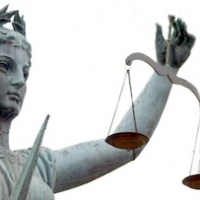The Honest Challenge of Avoiding Dishonesty

One of my favorite Dilbert books is Build a Better Life by Stealing Office Supplies: Dogbert’s Big Book of Business. But as amusing as this title is, it’s a serious matter given the amount of cheating and dishonesty that occurs not just in the workplace but also in prestigious universities, military academies, and among people in the public eye, such as Bernie Madoff, Mark McGwire, and Lance Armstrong.
How honest are you? If you were given a test in which no one but you would know how you did, might you report that you scored better than you really did?
In experiments, Dan Ariely, professor of psychology and behavioral economics and author of The (Honest) Truth about Dishonesty, found that numerous people inflated their scores when given the chance. The amount of increase was small, but it was consistent across many variations in the experiments.
Everybody has the capacity to be dishonest, and almost everybody cheats—just by a little. Except for a few outliers at the top and bottom, the behavior of almost everyone is driven by two opposing motivations. On the one hand, we want to benefit from cheating and get as much money and glory as possible; on the other hand, we want to view ourselves as honest, honorable people. Sadly, it is this kind of small-scale mass cheating, not the high-profile cases, that is most corrosive to society.
Of course, honesty doesn’t lack for gray areas. One key issue in business ethics, for example, concerns under what circumstances you have an obligation to be honest. When is concealing information unethical? Should you (do you) alert your employer when you’re looking for a new job? Do you inform your customers when your project has slipped and you’re not sure you can recover?
Many organizations have a policy or code of conduct that defines unacceptable behaviors such as theft, fraud, and abuse of company time and property. But judging from Ariely’s findings, given a chance, people are tempted to deviate from acceptable behavior, usually in minor ways (stealing office supplies!) and sometimes worse.
You can help create an atmosphere of honesty in the workplace by setting a good example. Promote open communication, including timely reporting of mistakes, and encourage efforts to resolve such mistakes without blaming and finger-pointing. And of course, take a stand against dishonest or unethical behavior.
Adhering to strict honestycan be difficult. And sometimes, total honesty isn’t the best policy for your coworkers, your organization, or your customers. But if you can be as honest as possible, you avoid the tangles that lying and cheating cause, you avoid worrying if someone is on to you, and most important of all, you can go home each day with a clear conscience.

